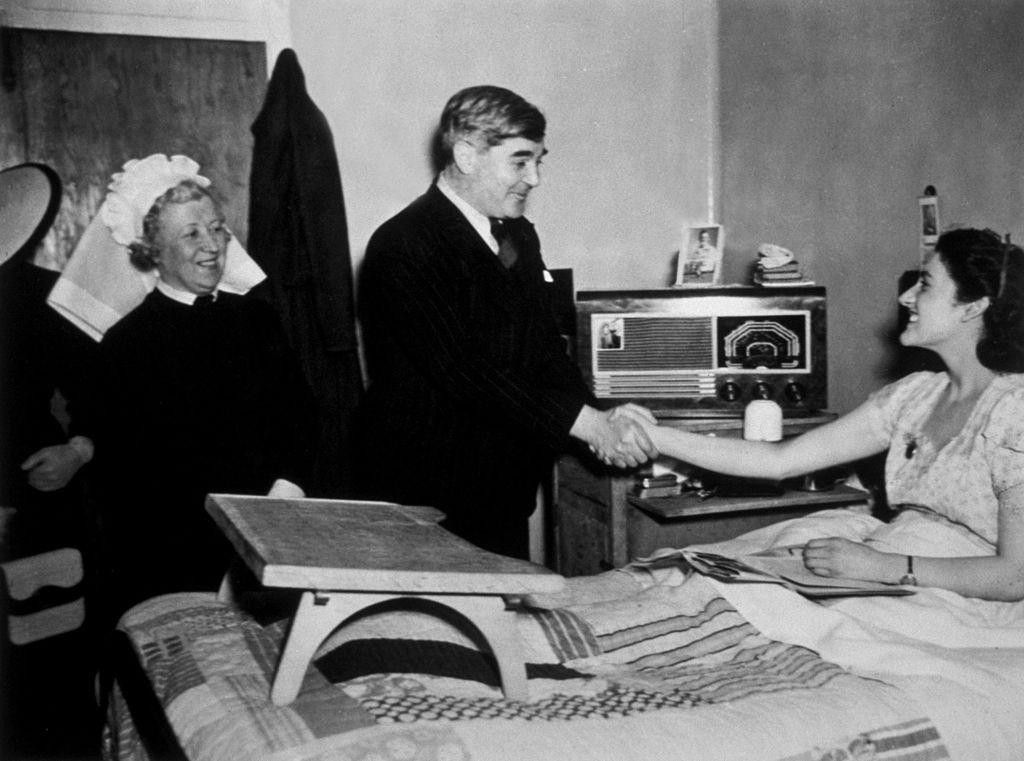The Independent's journalism is supported by our readers. When you purchase through links on our site, we may earn commission.
The Top 10: Consequential Ministers
A greatest hits of ministers who made a difference without ever making it to the dizzying heights of the ‘great offices of state’


David Mills suggested this list, of ministers who never occupied a great office of state, which I defined as prime minister, deputy prime minister, first secretary, chancellor, foreign secretary and home secretary.
1. Andrew Adonis, education minister, 2005-08. For the academy schools programme. One of my two nominations from the Blair government, he also started the HS2 rail project as transport secretary under Gordon Brown. Also nominated by Daniel Forman.
2. Max Beaverbrook, minister for aircraft production, 1940-41. “Appointed when the need for fighters was paramount, he has to share credit for the fact that Britain outproduced Germany in fighters during the critical months of the Battle of Britain,” said Paul T Horgan. A new biography of Max Aitken, Lord Beaverbrook, is out later this month. Also nominated by Alan Allport, David Twizell, Eric Sheng and David Landon Cole.
3. Aneurin Bevan, health minister, 1945-51. The NHS was a collective effort and even, despite Labour propaganda, the product of a cross-party wartime consensus. But it was Bevan who did it. Thanks to Paul T Horgan and 33 others.
4. Joseph Chamberlain, president of the Board of Trade, 1880-85, colonial secretary, 1895-1903. “Split two parties, kick-started radicalism, reformed imperialism,” said Jack Tindale. Supporting nominations from, among others, Andrew Adonis, Nick Anstead, Adam Behr, Lewis Goodall, Henry Hill, Ted Morris and Peter Riddell.
5. Michael Gove, education secretary, 2010-14, justice secretary, 2015-16, environment secretary since 2017. For schools changes, as well as for making a start on prisons reform and some imaginative greenery, he “must be near top of the list”, said David Mills. A nomination from Owen Bennett, who has a biography of him out shortly, was disallowed, but Gove was also nominated by Dan Frank, David Paxton, Marcus Roberts and Robert Shrimsley.
6. Patricia Hewitt, health secretary, 2005-07. For banning smoking in pubs and workplaces. “Easily one of the biggest day-to-day impacts on my life,” said PD Anderson. Also nominated by Stephen Bush and Cathy Doll.
7. Alan Milburn, health secretary, 1999-2003. For rescuing Bevan’s creation; the second of my nominations from the Blair years. Also nominated by Tim.
8. Alf Morris, social security minister, 1974-79. Brought in first disability rights law as a private member’s bill and then served as the first minister for the disabled. David Landon Cole and Robert Shrimsley.
9. Norman Tebbit, employment secretary, 1981-83. Drove through changes in employment law that cut trade union power. Suggested by Michael Crick, Peter Riddell and 10 others.
10. John Wheatley, minister of health in the first Labour government, 1924. The Housing Act 1924 created council housing, which grew to accommodate 42 per cent of British people by 1979, said John McTernan. “In parts of Glasgow, the first houses with back and front doors, built as a result of the 1924 Act, were called Wheatley Houses and still are by some older folk,” added Anne McGuire.
My recency bias excluded, possibly unfairly: George Anson (first lord of the Admiralty, 1751-56 and 1757-62: thanks to Alex Massie); Arthur Greenwood (Labour deputy leader and minister without portfolio who backed Churchill in 1940: John O’Shea, Ryan Flack and Nick Dean); Tom Johnston (Scottish secretary, 1941-45, “modernised the Scottish economy; created Scotland’s hydro-electricity network”: Richard Olszewski); and Ernest Marples (transport minister, 1959-64, for motorways, parking controls, postcodes, MOT test, Beeching cuts: Lewis Baston, Nigel Fletcher and Paul Linford).
A number of nominations were for ministers famous for one thing: Ellen Wilkinson, education minister, who raised the school leaving age from 14 to 15 (nominated by Pete Moorey); Denis Howell, minister for drought in 1976, which was the driest year for 200 years – “he did a rain dance on behalf of the nation; invited reporters to his house revealing to them that he and his wife shared a bath to save water; and a few days later the heavens opened, causing floods in some areas” (Robert Boston); Joel Barnett, chief secretary to the Treasury, for devising the Barnett formula in 1978 (Jonathan Reynolds); Ian McCartney, industry minister, 1997-99, for the national minimum wage (Blair McDougall and Nita Clarke); and Tessa Jowell, culture, media and sport secretary, 2001-07, for the 2012 Olympics (Gareth Flynn, Katie Martin and eight others).
Barbara Castle was a popular nominee, but she was first secretary of state, 1968-70.
In the “there’s always one” category, Matt Chorley nominated Chris Grayling. It is true that I said consequential; I did not say successful. In the “sometimes there are two” category, Rory Stewart nominated Cornelius Fudge, although I felt bound to entertain an appeal from Daniel on grounds that minister for magic counts as a great office of state.
Next week: Hits that blindsided experts and gatekeepers, such as “Maggie May”, by Rod Stewart, originally the B side of “Reason to Believe”.
Coming soon: Pompous phrases, such as “I am minded to…”
Your suggestions please, and ideas for future Top 10s, to me on Twitter, or by email to top10@independent.co.uk
Join our commenting forum
Join thought-provoking conversations, follow other Independent readers and see their replies
Comments
Bookmark popover
Removed from bookmarks